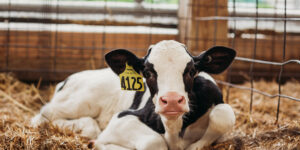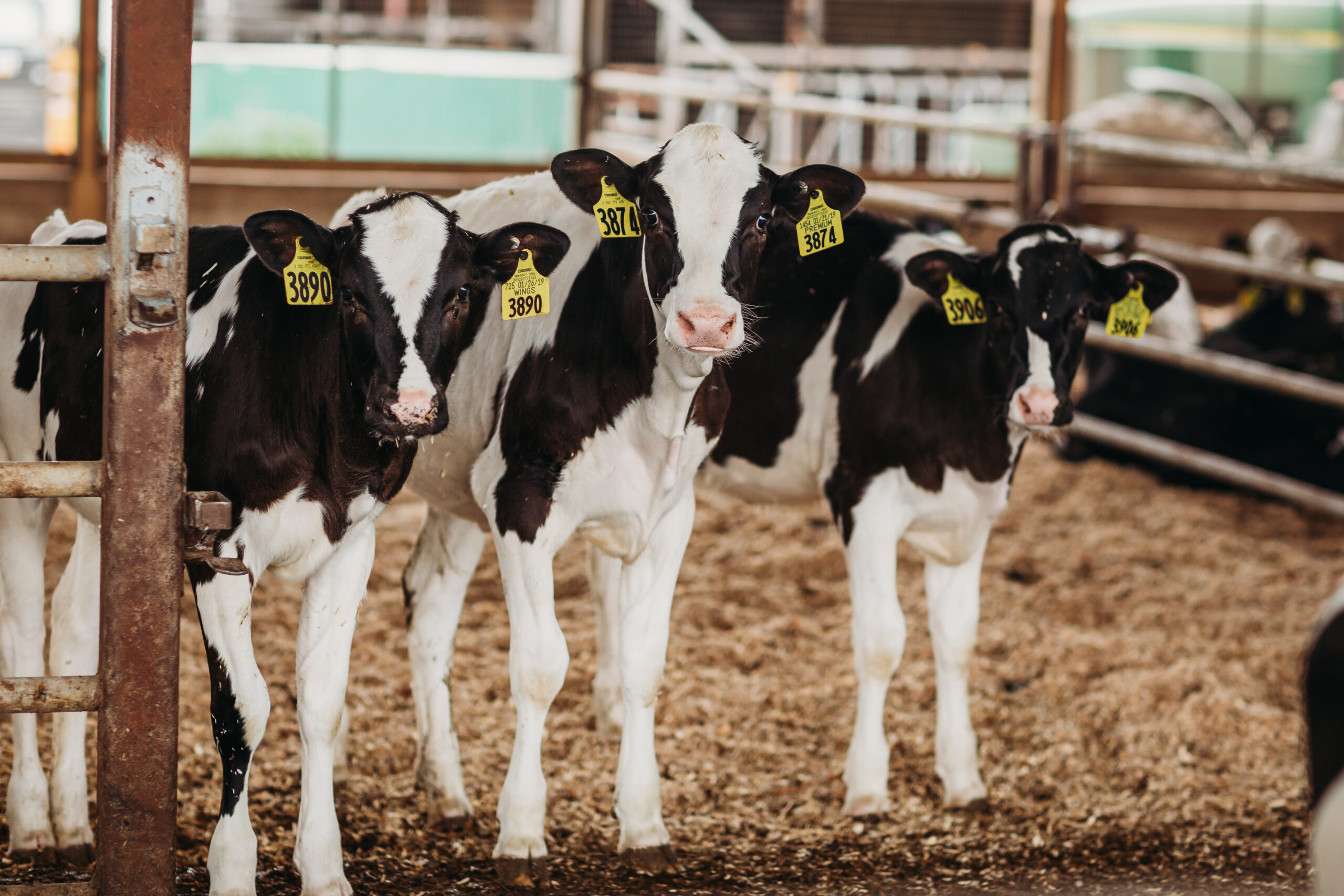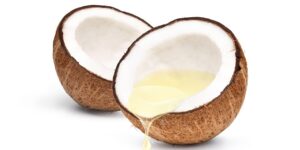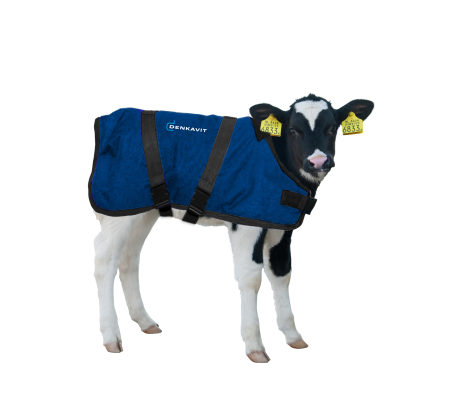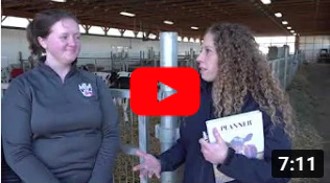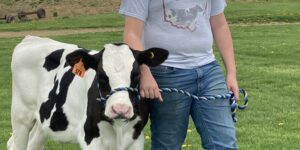Calves need more energy during colder temperatures
It is time to adjust your calves’ feeding program! As the environmental temperature decreases below the calf thermoneutral zone, the energy required to maintain core body temperature increases.
Thermoneutral zone
The thermoneutral zone is the temperature range in which the animal does not need to spend energy to either conserve or dissipate heat to maintain body temperature (NASEM, 2021). Calves are born with inadequate insulation capacity offered by the hair coat and limited fat reserves. If no feed is provided, the body energy reserves of a newborn calf would be sufficient to provide enough heat to ensure its survival for a maximum of one day of temperature below the thermoneutral zone. Energy recommendation standards are often given assuming the premise that the animal is in a thermoneutral environment. The thermoneutral zone depends on many factors, such as feed intake level, fat reserves, hair coat condition, and age. The NASEM (2021) suggests that for calves younger than three weeks old, the thermoneutral zone ranges from 59°F to 82°F.
Maintenance energy requirement
Maintenance energy requirement is the energy necessary to maintain body weight, perform vital body functions (e.g., immune system), and maintain body temperature without gaining or losing body reserves (e.g., weight). When the temperature drops below the lower critical temperature (59°F), the calf energy requirements increase as they must expend energy in the form of heat to maintain body temperature. When the temperature drops below the lower critical temperature (59°F), there is an increase in energy necessary for maintenance. For example, the energy requirement to maintain body functions at 32°F is about 26% greater than the energy required to maintain body functions at 59°F.
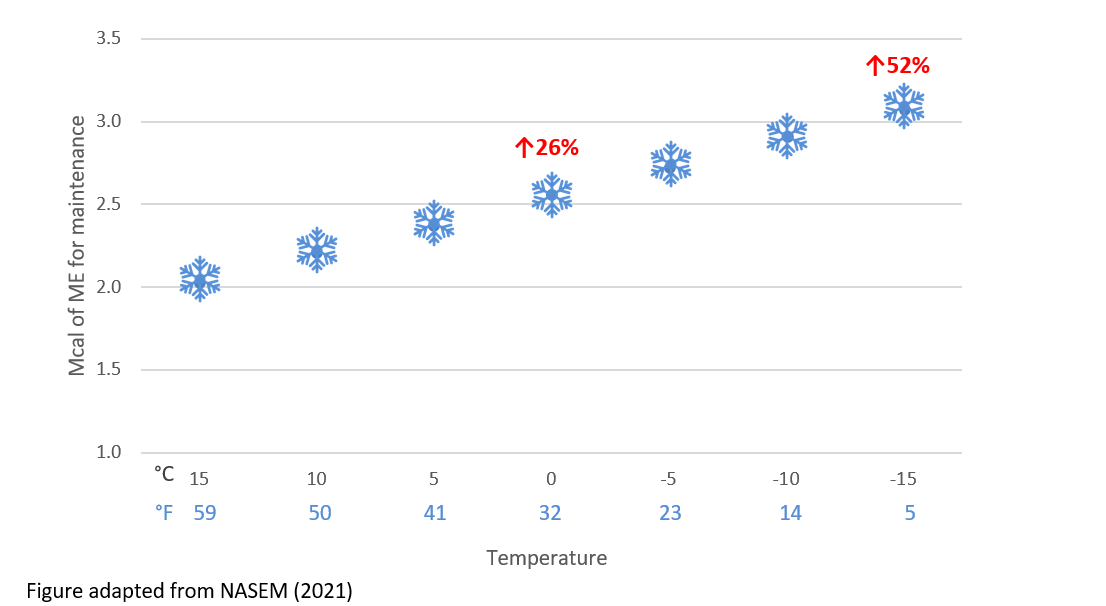
Energy increase
An increase in energy provided to the calf can be achieved by:
- Increasing the volume of milk fed per day
- Adding another feeding to your program
- Increasing the solids in milk
Young calves are the most sensitive animals on-farm as they are born with limited body energy reserves and feeding enough energy is crucial to maintain body vital functions such as the immune system. Consult with your Denkavit agent to adjust your feeding program and keep your calves healthy and growing!
Reference
National Academies of Sciences, Engineering, and Medicine. 2021. Nutrient Requirements of Dairy Cattle: Eighth Revised Edition. Washington, DC: The National Academies Press. https://doi.org/10.17226/25806.



